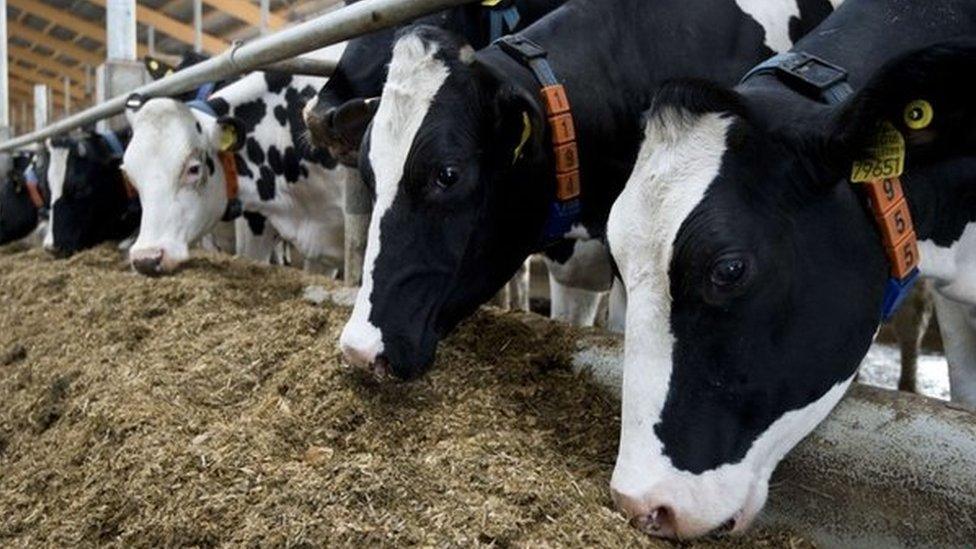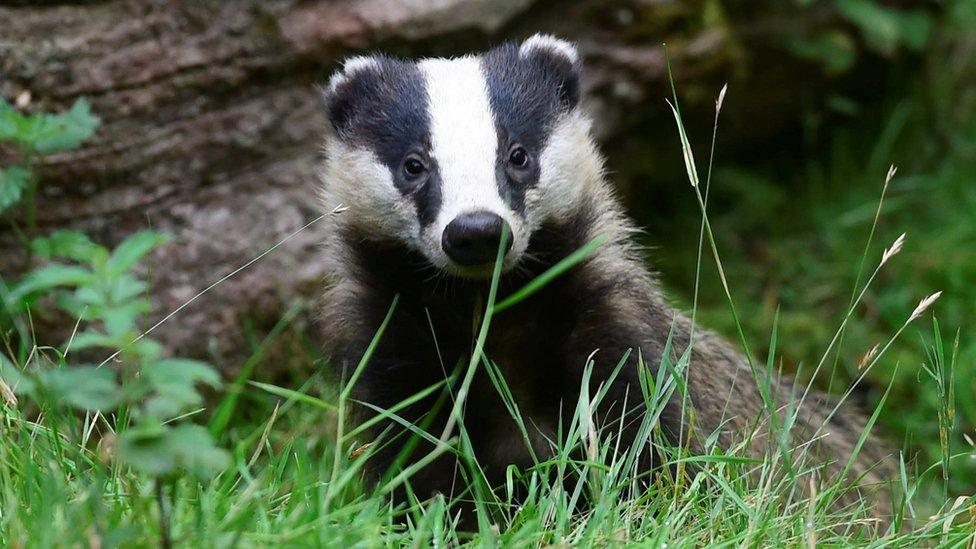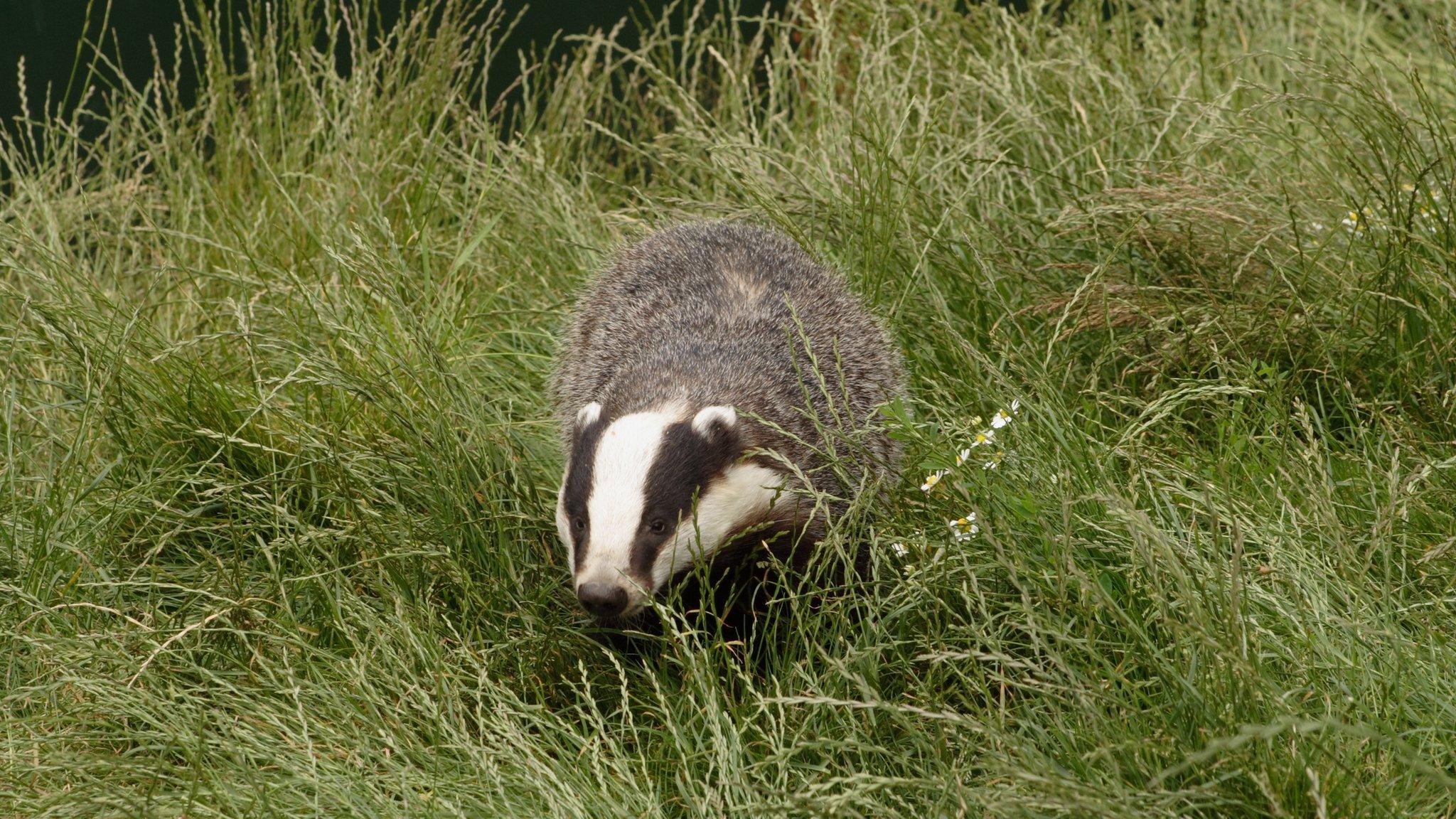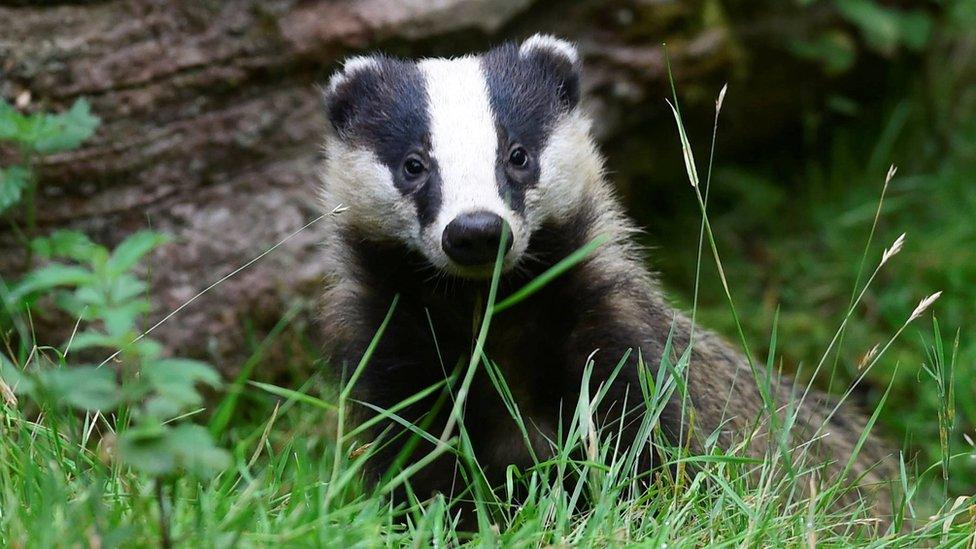Scots alarm growing over Bovine TB case in Cumbria badger
- Published

Concern is growing among Scottish farmers about the discovery of a deadly cattle disease in a badger in Cumbria
Concern appears to be growing among farmers in Scotland after Bovine TB was discovered in a badger in Cumbria.
Although the discovery was made some distance away, there are fears about the impact a spread would have on Scotland's Bovine TB-free status.
Further tests are under way to establish whether the disease is isolated to a single badger or part of an outbreak.
Experts urged farmers not to panic, but to exercise high levels of biosecurity.
But NFU Scotland said it would be a disaster if Scotland was to lose its Bovine TB-free status.
The Animal and Plant Health Agency (APHA) discovered the disease in badgers for the first time in about 30 years while investigating 16 cases in cattle in east Cumbria.
Restrictions on the movement of cattle are in place and further investigations are under way.
TB-free status
Prof Rowland Kao, a TB specialist from Glasgow University, said: "We have testing of cows both before they move in from England and also after they move into Scotland. Surveillance is what we need, not panic."
Although Scotland has officially been "TB free" since 2009, there are still cases. The designation requires less than a tenth of 1% of herds to have had the condition over the past six years.

The last case of TB in badgers in Cumbria was in the 1980s
Figures from Defra show 40 "new herd incidents" in Scotland in the 12 months to April 2017. In England there were 3,786.
Restrictions on cattle movements and testing are the biggest defences but containment becomes more difficult once the disease spreads to wildlife.
Scotland's mountainous geography acts as a helpful barrier for stopping a spread and experts still believe cattle would be the most likely cause.
TB-free
The impact of Bovine TB can be devastating with positive tests resulting in an immediate lock-down for farmers.
That happened in 2015 to Gordon McKilligan who farms near Banff in Aberdeenshire. He was given the all-clear three months later.
He said: "That's been the most difficult day I've had and knowing what it was going to mean for the whole year, and the knock-on effect it was going to have on everything else, it all went through my mind.
"It was thoroughly difficult because it meant I was in standstill and couldn't move anything or sell anything."
Being "TB-free" means animals only have to be tested every four years, unless they are being imported from high-risk areas. But the farming community sees a bigger benefit with Scotland trading on a reputation for high health and high welfare.
NFU Scotland's animal welfare policy manager, Penny Middleton, said: "It's a really good thing for Scotland and we were really pleased when we managed to get it.
"Particularly when we are facing Brexit and have to negotiate our own trade deals it's going to be a really important thing that we can keep hold of because it could make a big difference for us in the future."
Badger culls
Badgers have been culled in parts of England to control the spread and some are calling for the same in Cumbria.
Even if there was an outbreak in Scotland, Eddie Palmer from Scottish Badgers thinks it is unlikely there would be culling here.
He said: "I don't think any sort of culling experiment or action would happen in Scotland for several reasons.
"One is that it wouldn't work, the second thing is it's really expensive and I think there would be a public outcry about it.
All of this is a long way off and farmers are hoping the Cumbrian badger proves to be an isolated case.
Scotland's chief vet declined to be interviewed about the concerns but the Scottish government said it was monitoring the situation in Cumbria.
- Published4 August 2017

- Published3 August 2017
